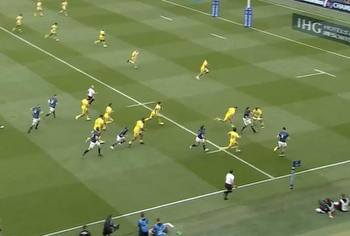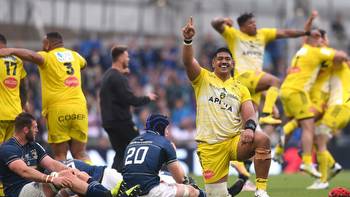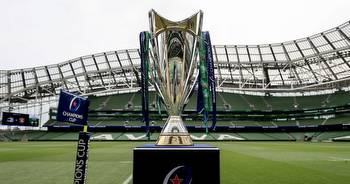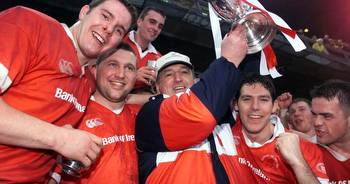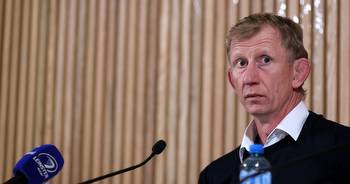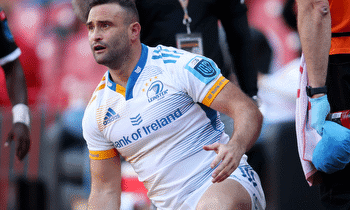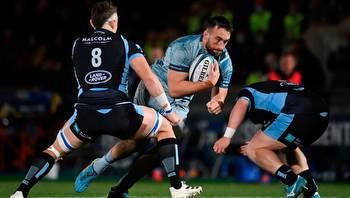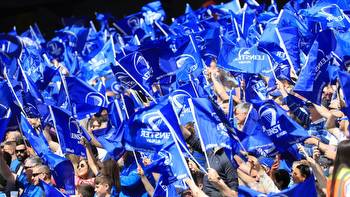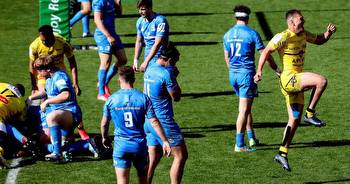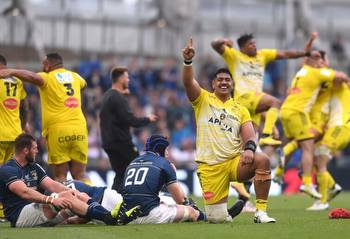Donal Lenihan: Leinster may not be only Irish victims of O'Gara's coaching smarts
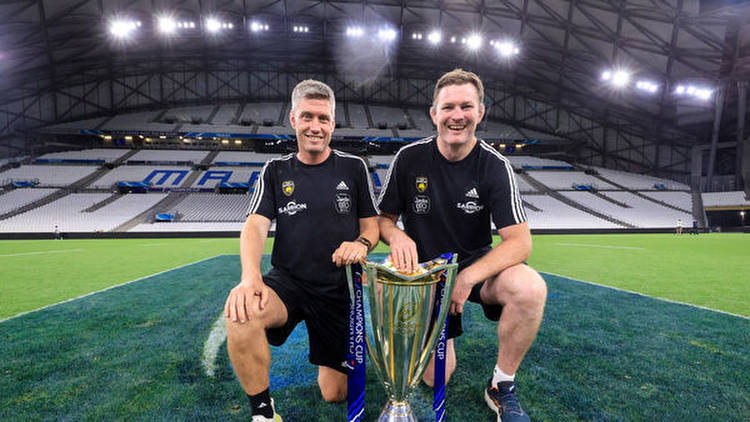
From the moment the final whistle blew in the 2018 decider against Racing 92 in Bilbao, Leinster have been obsessed with adding a fifth Heineken Champions Cup star to their shirts.
The prime motivation back then was in winning the race to become the first European club to achieve that incredible milestone. Since then however, all Leinster have experienced in Europe is an irritating cocktail of frustration and underachievement after failing to deliver in the knockout stage when the stakes were at their highest.
Those emotions have been fed even further by events in the Stade Velodrome on Saturday. Ronan O'Gara’s already impressive coaching career hit an all time high when delivering a master plan in denying Leinster the time and space they crave to tear teams apart. Credit also to another son of Munster, Donnacha Ryan, whose sharp rugby brain has already made an impact in his maiden season as a forwards coach.
On the back of this heartbreaking defeat, the chase for that elusive fifth star is about to become even more challenging for Leo Cullen’s men, with the questionable addition of three new South African contenders to next season’s European tournament, a debate for another day.
Entering a final of this magnitude with the tag of overwhelming favourites has weighed heavily on many a fancied team, across a variety of sporting codes, in the past. History is full of clubs achieving the impossible dream, as I discovered as a youngster when my beloved Leeds United were defeated 1-0, against all the odds, in the 1973 FA Cup final at Wembley by a Sunderland team competing in the second division at that time.
While La Rochelle are no Sunderland, such was the quality of Leinster’s starting side, with 13 players who filled similar roles for Ireland in the recent Six Nations championship and playing with a fluidity and understanding rarely achieved by even the best of club sides, it always felt that this final was Leinster’s to lose.
The fact that they performed nowhere near their best, on the biggest day of the season, can be attributed exclusively to the desire, guts and willingness of a desperate La Rochelle squad to play to the death even with the odds stacked against them. Delivering a winning tactical blueprint wasn’t O'Gara’s only achievement. Of equal importance was in creating a winning culture off the back of crushing defeats in last season's domestic and European finals.
In last season’s Champions Cup final, a red card on Levani Botia for a high tackle proved insurmountable. When young second row Thomas Lavault was yellow carded for the most stupid of trips on Jamison Gibson-Park, they were trailing by just a single point, with 14 minutes left. The winning of the game was presented to Leinster on a plate.
Ross Byrne’s resultant penalty extended Leinster’s lead to 21-17. What should have been the cue for Leinster to pick up the tempo and drive home their numerical advantage proved the opposite. Instead it was La Rochelle who found the character and will to lift their performance levels to unprecedented heights.
The final 10 minutes of this absorbing contest was played out exclusively in Leinster’s 22 with La Rochelle presiding over a complete bombardment of the Leinster line which, by a mix of fair and foul means, they managed to defend with honour.
Quite how referee Wayne Barnes failed to issue a yellow card, with the relentless pressure being imposed by the bruising La Rochelle forwards forcing Leinster into the concession of five penalties over a five minute spell, all within metres of their own line, would have warranted a steward's enquiry after the game had Leinster survived.
The fact that O'Gara’s magnificent warriors kept their heads and their composure, against a more experienced foe, to finally get over the line courtesy of a try, with 70 seconds left from a makeshift scrum half in Arthur Retiere, was proof positive of the role the Cork man has played in turning a very decent side, but with a history of never lifting a trophy, into a band of winners on the biggest stage of all. In his first year as chief cook and bottle washer, O'Gara, as he did throughout a stellar career as a player, delivered in spectacular style.
Facing a side of Leinster’s quality, the last thing O'Gara needed was losing two of his team’s standard bearers in All Blacks Victor Vito and Tawera Kerr-Barlow to injury in the period leading into this contest.
By his own admission, one of the biggest lessons absorbed from his time in New Zealand with inspirational Crusaders head coach Scott Robinson was to back the qualities of the next man promoted due to injury, to build his confidence and let him loose.
In that respect he can be proud of the performances of rookie open side Matthias Haddad and replacement scrum half Thomas Berjon, who both performed heroically in the absence of the New Zealanders. Fitting too that Retiere, who otherwise may not have even made the match day squad, had the final say.
On the plus side, the timely return to arms of the monstrous Will Skelton, who has haunted Leinster on multiple occasions with Saracens and La Rochelle, provided a major psychological boost. Getting the rampaging Wallaby back in time from his recent calf injury proved sufficient to make up for the loss of other front liners.
When La Rochelle lost those finals in heartbreaking circumstances last season, O'Gara must have been transported back in time to a period when his Munster team would advance to the home stretch in Europe only to fall at the final hurdle. Eventually they learned how to negotiate their way home.
In his first season as a head coach, being able to use those experiences to shape and alter the mindset of this La Rochelle squad to defeat a Leinster side that even the bookies had installed as 12 point favourites, represents the pinnacle, to date, of a coaching career that knows no bounds.
So, how did he do it? Recognising that the key to Leinster’s dominance stems from the breakdown, La Rochelle competed ferociously in the contact area, not only slowing the recycle, but using the fact that Leinster only commit two players to the ruck to apply massive pressure directly on Jamison Gibson-Park.
It helped that impressive hooker Pierre Bourgarit and inspirational captain Gregory Alldritt rowed in with a number of key turnovers at crucial times, something Leinster had been inflicting on all opposition throughout the tournament.
Operating in tandem with that breakdown pressure, La Rochelle delivered a punishing line speed in defence. As a result, Leinster’s passing game lacked its usual precision and accuracy while their handling also suffered. Every Leinster mishap saw La Rochelle grow in stature.
On the other side of the ball, wingers Raymond Rhule and Dillyn Leyds who combined superbly for Rhule to score from their first meaningful attack, along with returning full back Brice Dulin, whose kicking game wreaked havoc throughout, completely outplayed the Leinster back three.
La Rochelle targeted the Leinster scrum and applied so much pressure through their massive front five that every scrum feed had to be a quick channel one strike with Jack Conan forced to pick immediately in order to limit the damage. This meant Leinster were unable to deliver the clever launch plays used to manipulate opposition defences off attacking scrums.
While Leinster’s defiant goal line stand and the concession of the winning try in the last play of the game might suggest they were unlucky to lose at the death, the reality is they were outscored by three tries to nil. On that basis alone, La Rochelle were worthy winners.
The implications of this defeat will have extended all the way to New Zealand where the All Black coaching team are currently devising a template for the forthcoming test series against Ireland. Unfortunately, Leinster may not be the only ones to suffer on the back of this loss.


